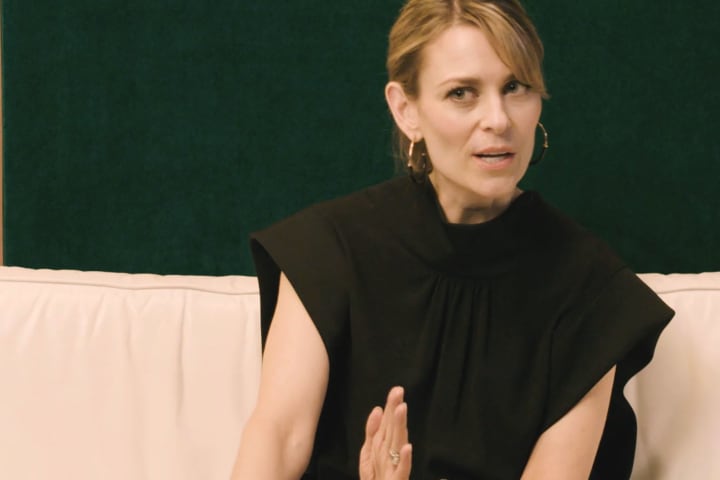The trajectory of Heisenberg is powered by a sense of loneliness, Director Tom Healey says. ‘Despite that, it’s an optimistic text. There’s a lot of faith in it, a fascination with science and a ripple of magic.’
Healey has directed two Simon Stephens plays at other theatre companies – Punk Rock and Birdland. Both are driven by complex and violent central characters, which Stephens explores with extraordinary empathy, and – notwithstanding its decidedly more romantic quality – Healey thinks Heisenberg is no different.
‘The love that Stephens has for us, for our complexity as humans…is the source of all his writing – and of course the source of all great playwriting, right back to Shakespeare and the Greeks. It’s tussling with the idea of why we are the way we are. And what we endure as humans.’
In Heisenberg, Stephens gives us two eccentric, complex and fascinating characters. There’s Alex Priest, a 75-year-old Irish-born butcher and fanatical diarist who is fascinated by the ‘seams’ of animals. He loves music – all genres; he’s a loner and a creature of extreme routine. Then there's Georgie Burns, a 42-year-old, single mum from New Jersey who can’t dance but sure can swear.
When Georgie enters Alex’s orbit, a great experimentation of contrasting personalities unfolds. ‘You’ve got this older European man, with a very traditional job, an ancient kind of skill, and then you’ve got this scatty, brash, ‘new-world’ American. Putting those two temperaments together is certainly deliberate. It’s like a social experiment where you pour two ingredients into a test tube to get the fizz.’
As the characters’ interactions deepen, we begin to sense their desire for change. Right from the outset, the vibration of displacement and isolation swirls underneath the text. They are subconsciously and consciously seeking greater connection in their lives. ‘It’s about loneliness, and loneliness is a very sad subject,’ Healey explains. ‘All of us have experienced it. There isn’t a person alive that hasn’t spent at least a day feeling lonely, if not a great deal of their time.
‘It’s about the idea that all of us contain the possibility to transform ourselves. Whether we’re in a marriage, and that marriage needs transformation. Or whether we’re single. Whatever point we’re at in our jobs, and our lives, it’s easy to get patterned or stuck very quickly. When we’re not alive to what is actually happening, to what is available at our finger tips, we can fall into that before we know what’s happening.’
So Heisenberg is about breaking these patterns, Healey thinks. And about opening ourselves up to the possibility of ‘really, truly, actually’ being alive. Not just existing, not just walking through the world, but rather understanding what the world is in all its miraculous dimensions. Healey is happy to let audiences make up their own minds about what brings Georgie and Alex together. He’s still figuring out where he stands. ‘I have two theories,’ he says. ‘I think Georgie is brave – that’s incontestably true. Whether she orchestrates these events or not, I’m not sure. I’m open to the idea that she sees Alex, and for whatever reason she kisses him. And everything that happens thereafter is in the present. On the other hand, there’s the possibility that it’s more calculated, more of a science experiment…the ambiguity is delicious!’
In the Encyclopaedia Britannica, the Heisenberg Principle states that both the position and velocity of a particle cannot be measured exactly at the same time. In other words, it is the principle of uncertainty or indeterminacy of all things at the tiniest of levels. Heisenberg the play suggests that this principle is applicable to every aspect of our lives. ‘[It’s] about staring down loneliness, defying convention, and embracing the high-voltage rush of leaping into uncertainty. It’s an exquisite, life-affirming jewel of a piece.’
Published on 29 May 2019




